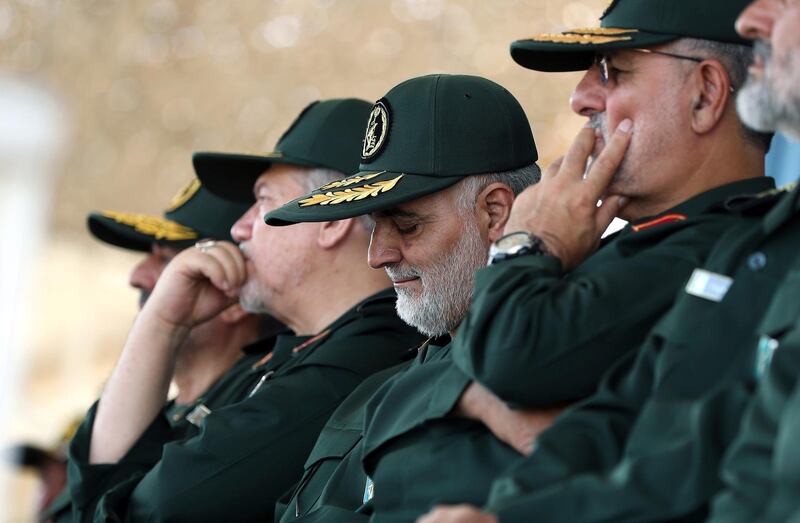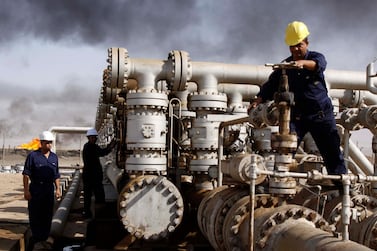Oil prices surged close to three-month highs on Friday after the US announced it had killed Iran's top military commander following air strikes near Baghdad airport.
Brent was up 4.12 per cent and trading at $68.98 per barrel, while West Texas Intermediate was up 3.74 per cent at $63.47 per barrel at 5.31pm UAE time.
The death of Qassem Suleimani, who headed the Quds Force within the Islamic Revolutionary Guard Corps early morning on Friday in the Iraqi capital is expected to escalate tensions between the US and Iran, which has been on the boil for some time.
Brent rose close to the $69 mark it reached following the September 14 attacks on Saudi Aramco's oil facilities, which temporarily wiped out 5 per cent of global supply. Washington had blamed Tehran for the attacks, which caused Brent to surge 16 per cent in intra-day trading.
US President Donald Trump tweeted an image of the US flag, while the Pentagon confirmed Suleimani's death.
“At the direction of the president, the US military has taken decisive defensive action to protect US personnel abroad by killing Qasem Soleimani, the head of the Iranian Revolutionary Guard Corps-Quds Force, a US-designated Foreign Terrorist Organisation,” the Pentagon said in a statement.
Iran, which is expected to retaliate to the killing of its top commander believed to be the main implementer of Tehran's military strategy in Syria and Iraq has denounced his killing.
Iranian foreign minister Javad Zarif called the attack on Suleimani "an act of international terrorism" and said it was an "extremely dangerous and a foolish escalation.
The US' act of international terrorism, targeting & assassinating General Soleimani—THE most effective force fighting Daesh (ISIS), Al Nusrah, Al Qaeda et al—is extremely dangerous & a foolish escalation.
— Javad Zarif (@JZarif) January 3, 2020
The US bears responsibility for all consequences of its rogue adventurism.
The US attack follows a week of tensions in Iraq, where protestors stormed the US embassy in Baghdad on Tuesday in retaliation for strikes against the Iran-aligned Kataib Hezbollah militia group.
Hundreds of supporters and members of Iraq’s Kataib Hezbollah militia breached the outer compound wall of the embassy in Baghdad and set it on fire on Tuesday. Washington deployed 750 troops to the country to fortify its position in the country in response. The protest from the pro-Iranian militia supporters marked a new escalation in geopolitical conflict in the Middle East between the US and Iran, whom Mr Trump blamed for the attack on his country's embassy.
The escalation follows a year of tensions between the two sides, with Washington accusing Tehran of masterminding a spate of attacks on tankers transiting the Strait of Hormuz as well as the strikes on Saudi Aramco's facilities, which temporarily wiped off 5 per cent of global supply in September.








